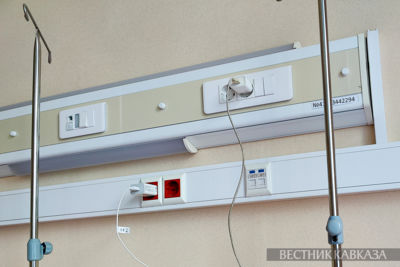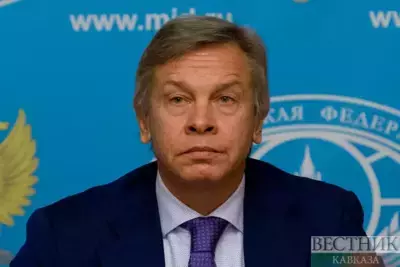This week, the European Parliament recommended the EU leadership to freeze talks on Turkey’s membership in the bloc. On the margins of the International Winter School in Istanbul, organized by BILGESAM, Alper Caliber, a professor at Istanbul University Kemerburgaz, answered the questions of Vestnik Kavkaza about the prospects for relations between Turkey and the EU.
-After 10 years of talks, the relations with the EU are almost non-existent. However, some European political circles who have a keen interest in Turkey-EU relations believe that either suspending or ending talks would be a fatal mistake Some politicians from the European Parliament think that keeping Turkey on a court to the EU is the best way to improve relations with two sides? What is your opinion?
-Turkey and EU accession talks started in October 2005, so it passed already roughly 14 years. But these accession talks progress very slowly with snail’s pace. Just 16 of these chapters were opened and just one was provisionally closed. So as I know, in recent years, no other chapter was opened. The opening on the accession talks in some other chapters is now blocked by Cyprus, France due to different reasons. But the decision of suspension is still very important because in the history of the EU this was kind of the only decision, only resolution taken by the European Parliament against the candidate country. So there is no similar decision in the whole history of the European integration process. This decision was basically taken because the EU Parliament wanted to give a strong message and signal to Turkey - you are far from implementing the Copenhagen Criteria and you are distancing from the European values and norms and democratic principles, so this cannot be tolerated anymore. And unless you do the reform process again, these negotiations should be suspended. Whether their decision will be implemented by the EU countries, depends mostly on Turkey’s policies in the near future.
I am sure, there will be some negotiations behind doors and Turkey will try to do some cosmetic changes in the political system. If the EU side is persuaded by these changes and amendments, then this decision may be not applied. But still, this does not make a real difference in Turkey-EU relations because, as I said, these relations are de facto in suspension in terms of the accession talks. For more positive developments in Turkey-EU relations, we will need more reforms, more openings. But there are certain scenarios about Turkey’s EU perspective and these scenarios are increasingly excluding full-membership perspective.
-So, at the end of the last year, the relations between Turkey and the EU remarkably improved after the US trade war. Do you think these relations depends on such things?
-I do not remember any sort of drastic marketing development in Turkey-EU relations. Yes, the US trade war and other sort of exclusionary and ill-managed US policies can create a certain environment where Turkey and EU can have a certain level of rapprochement, but this will be limited, this can never create a real momentum in Turkey-EU relations which can be translated in revival of Turkey’s EU full membership perspective. If there is some strong dynamic this dynamic should originate from Turkey and the EU itself.
-Do you think that Turkey will become a member of the EU?
-Not really. I do not hope much for it. I am a bit pessimistic. Turkey tries to make some cosmetic changes in its political and legal system and the EU can say, OK, this is enough for the modernization of the Custom’s Union. But as I said for the real development of Turkey-EU relations we will need more radical reforms from the Turkish side and sort of transformation of the EU side. The EU also made it clear that the presidential system in Turkey in its current form will be an obstacle in Turkey’s EU membership perspective.
-But last year Turkish official said that if we had no improvement with the EU, we would enter directly the Eurasian integration process. How can you comment on this?
-The Turkish government should not be the only party to blame. But the most responsibility in relation to the Turkey-EU crisis belongs to Turkey. Of course, as I mentioned, in the EU there are certainly some parties or figures who in any condition will be against Turkey’s EU membership. But they are always there. Turkey by reversing its reform process just played into the hands of them. Time to time the EU could be more helpful but, in my opinion, the EU gave too much credit to this government because they believed this government would democratize the country. They did not want to see the anti-democratic practices for a long time. When they awakened it was late.
-How do you assess the perspectives of Turkey-Russia relations in connection with suspending?
-The accession talks won’t have kind of impact on Turkey-Russia relations. Turkey-Russia relations should be considered in a broader context in relation to the region and global conditions. Especially in Syria, where they both cooperate and this cooperation is not welcomed by the US and some western European countries. But the main issue for the Turkish, Russian and US governments in the near future will be S-400 issue. Turkey and Russia agreed on this issue but this is not tolerable for the US government, because the US government cannot allow the NATO country to have this kind of Russian missile system. We are not talking only about some missiles coming to Turkey, it has very sensitive and sophisticated software coming with that. The US government basically thinks that if Russians enter the defense system of the NATO country through these S-400s, this will sort of endanger the US and NATO security. I do not see any kind of midway solution.
















